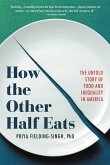Social scientists use the term social integration to refer to individuals' connections with others in their environments. The concept and its consequences have been the subject of considerable study. Many researchers have asserted that meaningful and enduring ties to other persons serve as a buffer against stress, and thereby promote physical and mental health. The results are especially pronounced for older persons. Social Integration in the Second Half of Life presents integrative reviews of theory and research on this topic. The editors and contributors, all currently or previously affiliated with the Cornell Gerontology Research Institute, also present new empirical findings of research done at their center. The first section of the book discusses basic theory and principles of social integration in later life and its implications for health. The second, largest section examines specific issues: retirement, driving, family support, housing, neighbors. The third section addresses interventions to promote social integration: transportation, volunteering, and peer support for dementia caregivers. Throughout, the authors focus on the diverging influences of social integration and its converse, social isolation, in later life.
Dieser Download kann aus rechtlichen Gründen nur mit Rechnungsadresse in A, B, BG, CY, CZ, D, DK, EW, E, FIN, F, GR, HR, H, IRL, I, LT, L, LR, M, NL, PL, P, R, S, SLO, SK ausgeliefert werden.









